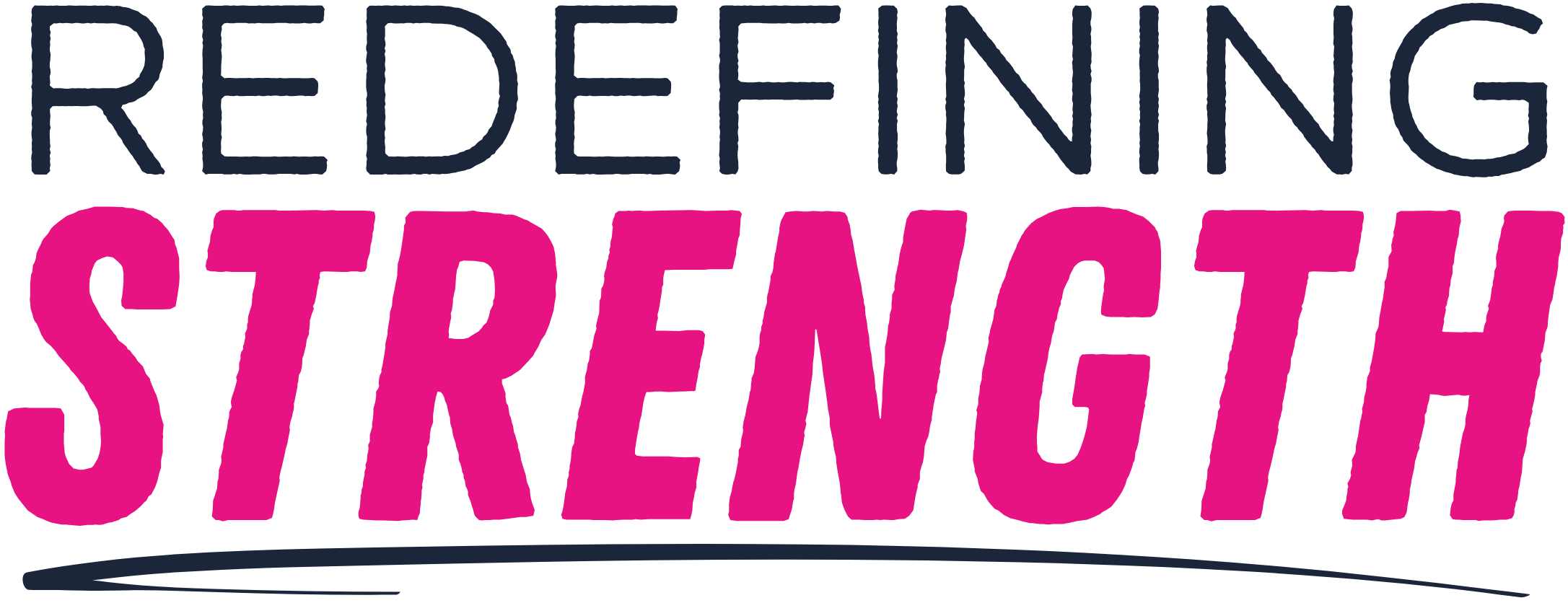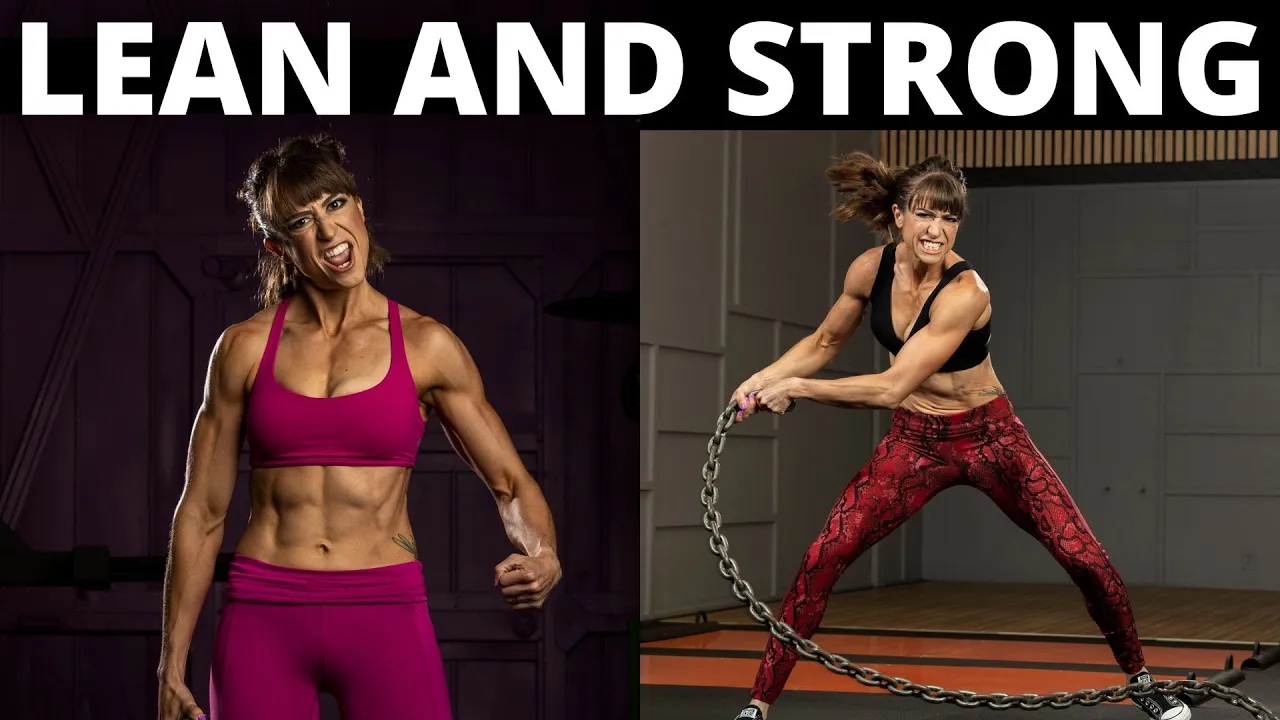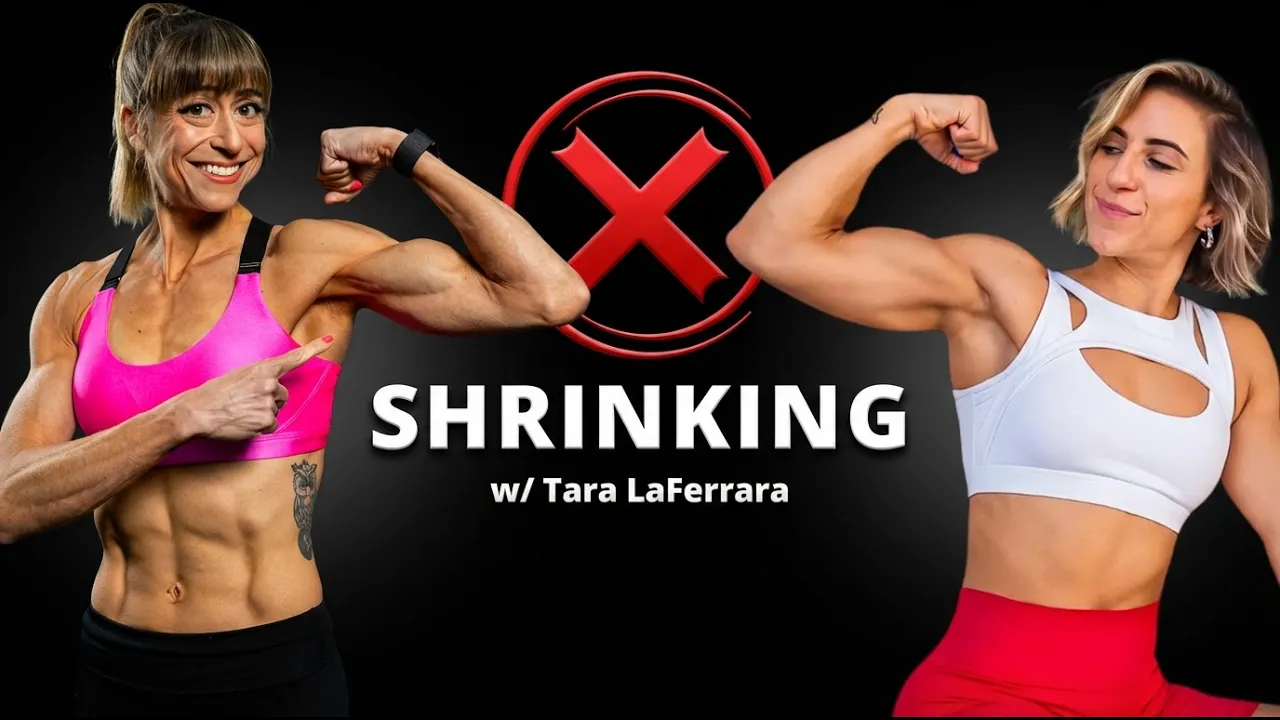Muscle is the secret to longevity.
If you want to be lean and strong till your final day on this planet, you need to focus on building muscle.
But if you want to build muscle, you’ve got to work at it.
We lose muscle, and strength, as we get older, but part of that is OUR fault.
Because it is partly our fault, this also gives us the power to CHANGE and reverse this muscle loss.
So while it may get harder as we get older, that isn’t an excuse.
It just makes it all that more important we do everything we can to build it.
That’s why I want to share not only 5 essential tips to build and retain lean muscle as you get older but also just give you this warning…
Even if you want to lose fat, or achieve body recomp, you can’t keep doing what you’ve always done!
What used to work in your 20s and 30s, won’t work in your 40s, 50s and 60s…
Especially as you go through menopause.
That’s why it’s key you focus on building that lean muscle NOW, not tomorrow or the day after and embrace the changes needed!
Before I dive into these tips, I do want to highlight why it is so key we do what we can in terms of lifestyle changes to avoid not only muscle loss, but promote optimal muscle hypertrophy….
Because as we get older, there are numerous factors working against our muscle retention and gains.

Research has shown we can start to lose 3-5% per decade starting after 30, especially if we aren’t active.
When we were younger, our body was primed from a hormonal perspective to build muscle basically without us trying.
It’s why it’s also so dangerous for us to get stuck on protein intakes and training techniques from research done on 20 year olds.
Their bodies are primed to grow muscle…basically they can think about growing muscle and it grows.
Now this isn’t an excuse to just accept decline as we get older.
Accepting muscle loss or belly fat or injury because of your age, is the fastest way to get old quick and feel and look horrible.
But it is key we are aware of not only how our body changes, but that these recommendations don’t take into account the decades where our body isn’t working with us, but instead slightly against our strength and muscle gains!
Our body isn’t as efficient at utilizing protein for repair as we get older.
We are slower to recover. And injuries may have added up.
During menopause, inflammation and sleep and energy issues can also negatively impact not only our workouts but also our ability to gain muscle.
And while you may have bounced back after inconsistent workouts or injury in your 20s and 30s, all of these factors make it harder to rebuild lost muscle as you enter your 40s, 50s and 60s.
But even more essential you do what you can to be consistent with your training.
On top of all of this, our busy lifestyles and improper dieting practices to lose fat earlier on, may have also lead to muscle loss.
And this will only compound if we don’t now take action.
So stop waiting to address it…
Address it now!
And realize that, even if you want to lose fat and achieve amazing body recomp,you’ve got to stop the starvation and overtraining cycle!
Which brings me to tip #1…You may have to ditch the scale.
Stop freaking out at scale fluctuations.
The scale is going to increase.
Sure if you’re losing fat as you gain muscle, you may not see a change.
One pound lost of fat as you gain one pound of muscle leads to no change, although you’ll look a whole heck of a lot leaner.
BUT if you want to focus building lean muscle, you need to embrace GAINING weight on the scale.
I can tell you personally earlier on in my body recomp journey, this was a hard thing to accept.
Especially if you’re coming off a phase where you worked so hard to lose that stubborn fat.
The last thing you want to do is see it creep back on.
So you may find that using only measurements and progress photos for a while is key otherwise you may sabotage yourself.
Because you can see that scale increase and look leaner!
And if you get upset by every scale fluctuation up, you will never let that body recomp happen!
So often, when we want that body recomp, we get focused on fat loss, when to truly get the definition we want, we actually need to increase our lean muscle mass!
To increase your lean muscle, get ready to ditch the scale or accept daily fluctuations where often there will be big jumps up.
These jumps will happen for a number of reasons all of which are part of the process and even helpful to see gains as fast as possible.
You may see the scale increase as you work to build muscle because of water weight and glycogen storage as well as muscle tissue damage from hard training sessions.
So often water weight gain is demonized.
But this storage of water in your muscles is key to help your muscles repair and rebuild.
Not to mention, you may store more water if you up your carb intake.
This glycogen storage can help you stay energized, push through hard training sessions and create that anabolic environment to make it easier for you to build lean muscle!
Too often carbs are demonized, but especially if we are training hard, we need carbs to optimize hormone levels and create that environment for growth.
So we can’t fear the scale going up or water weight being gained.
And after a hard training session, especially if you feel sore, don’t be surprised if the scale jumps up because of inflammation from muscle tissue damage!
Not to mention, as you gain muscle, even if you lose fat, that scale may increase.
Freaking out at those increases is going to make you do the opposite of what you need to see results!
Tip #2: Truly PUSH and challenge yourself in your workouts.
Often we do a round that FEELS hard and hit that top number in the rep range or the single number on a lift we are supposed to complete and accept that we pushed hard enough.
Yet often, there is MORE we can give even though we were already uncomfortable.
This doesn’t mean cutting out rest though to feel more out of breath. Limiting rest can actually prevent you from lifting at your true 100% intensity.
And if we want to build muscle, we truly have to create that progressive overload and challenge so muscles have to rebuild stronger, especially the more advanced we are.
This is why you need to use forms of progression like tempo, range of motion, different types of tools over just adding loads.
You also need to focus on working DOWN in the rep range over just staying at the top of it.
If you can do 12 reps when 8-12 reps are assigned, next round go up to push yourself with a weight you think you can only do for 8-10.
If you can, still do the 12.
If you can’t, stay with that weight for another round, till you can do the 12.
Even push yourself to find something that you max out at 8 with to “grow into” that weight for 12 reps.
And depending on your training experience, you may even do those 8 reps, use rest pause techniques and pause for 15 seconds, then do a couple of more to try to get out 10-12 with a weight you could only technically do 8 with!
This makes your body think it did 12 reps with a load it can only complete 8 with which can help you ultimately lift more quality reps without doing wasted volume or trying to use a weight you can’t truly handle!
You may even find that if you are able to do a weight for 8 reps until that last round, you use rest pause technique to still complete 8 reps over going down in weight because you would only be able to do 6!
But don’t go through the motions just doing a weight for the reps listed, really work to use this double form of progression and don’t fear slightly lower reps and heavier weights!
Tip #3: Focus on eating more.
Muscle is metabolically costly. It requires calories to be maintained.
If you don’t eat enough to build it, you won’t see your hard work in the gym paying off.
And the more muscle you build, the more calories you need to keep consuming to keep building.
More muscle equals more calories burned at rest.
Which means you need to consume more calories on a daily basis to maintain the muscle you have….
And even more if you want to KEEP building.
It’s part of why you need to ditch the scale at times when focusing on those muscle gains.
When building muscle, as your weight increases, you may also need to increase your calories.
This often goes against what we are conditioned to want to do, especially if we want to lose weight or have just lost weight.
Generally when we see the scale go up, we want to cut our calories.
But this can prevent us from building the lean muscle we are working hard to build.
This is why you need to focus on other forms of measurement to see body recomp.
But is is also why TRACKING your diet is so key.
I know personally when I can SEE I’m doing the right habits, it makes it so much easier to trust in the process.
It can help you see you’re fueling properly and implementing those daily habits.
It can also allow you to accurately adjust!
Too often we only see tracking as something we do when we cut out things to lose…when we restrict.
But it can also be a tool to help us add in the fuel we need in a way to perform our best!
While you don’t need an extreme surplus to gain, you do want to start with even just your maintenance calories and increase from there!
So if you’ve been in a deficit, focus on slow increases of 100-200 calories per week over time, staying focused too on the quality of your fuel and even your macros!
And if you do see more fat being gained as you build, you can then always do a mini cut after a set muscle building phase.
But you have the power to adjust those macros as needed because you are tracking!
Tip #4: Increase Protein Portions PER MEAL.
Eating only 10 grams of protein at a meal isn’t going to cut it if you want to build muscle as you get older.
That small amount won’t optimally stimulate muscle protein synthesis.
And as we get older we can develop anabolic resistance, meaning we are less able to utilize protein as efficiently.
This means we need to increase our protein intake.
But it isn’t just increasing our daily protein intake that can help, it is actually increasing our intake per meal.
You’ll hear the myth you can only utilize 20-30 grams at a time, but this isn’t true.
But studies have shown you can actually utilize up to 70 grams easily in a meal, especially a meal of mixed macros.
Not to mention 20-30 grams is what is directly utilized for muscle repair and growth.
We have to remember that not all of the amino acids we consume will only go to that.
We are made up of protein and what we eat is utilized in so many different ways.
So it is key we get MORE for all of those functions as well as muscle repair, especially since as we get older we are less able to utilize protein as efficiently.
To best stimulate muscle growth and repair, focus on increasing your protein intake to 30-40 grams per meal.
Really shoot for 40 grams in a pre or post workout meal especially!
Just even increasing protein around your workout by 5-10 grams can be a great place to start if you’re struggling to increase your protein currently.
Tip #5: Lift heavier than ever.
Too often as we get older we STOP lifting heavy.
I’ve had clients start training with me telling me they even SHOULDN’T lift heavy or do certain compound moves because they are over (insert age here).
But you use it or lose it.
Part of why we lose strength and muscle is because we don’t push ourselves in the ways we did when we were younger.
We need to keep challenging our bodies.
Which is why we need to include some lower rep, heavier compound lift work in our workouts weekly.
This doesn’t mean you have to become a powerlifter if you don’t enjoy it.
But sometimes you do have to include things you don’t like to be able to do more of what you love…and feel and look the way you want.
So consider including a single heavy lift at the start of your workouts before you get into supersets or circuits, performing a compound exercises with weights that really max you out in that 4-6 rep range even!
If you want to feel and look your most fabulous till your final day on this planet, you need to focus on building and retaining lean muscle.
And while this can get harder as we get older, these 5 tips will help you fight against muscle loss and even build lean muscle no matter your age.
Don’t just accept that getting older has to mean decline. Because it doesn’t.
Join my fabulous free Facebook Community of women building their leanest, strongest bodies at any and EVERY age…




Very much so,enjoyed this read!
I agree completely & am eager to implement all suggestions.
Thank uou so much!🌸
So glad they helped!
This is everthing, I know just have to act on it thank you.
Taking action is definitely the hardest part. What’s one small step you could take right now to have taken action?
The read was very helpful. I’m 47 and I love challenging my body at the gym. These tips were helpful especially about the scale. I want to be strong! Thank you.
I’m so glad it helped! Love that you’re challenging yourself at the gym and finding other ways to measure success and feel your most fabulous!
I want to lose fat and get lean but I am 74 years old and have scoliosis in my lumbar spine. I just completed 25 physical therapy sessions and am cleared to exercise intelligently. This gives me hope to regain strength and health
So glad it helps!